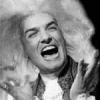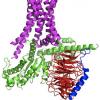Hi everyone,
I came across this Brain Health forum a month or two ago. I've long been interested in health, but had never gotten very interested in the ins and outs of my brain until recently. I realized some time ago that the biggest hurdles to success and happiness are my own self-defeating habits of mind, but only just discovered the world of nootropics and biohacking brain chemistry. Very interesting stuff, and I'm excited to see if it will work for me. I've struggled my whole life with:
- procrastination (has been really bad at times)
- difficulty focusing
- anxiety, sometimes very bad (often the root of my procrastination and difficulty focusing), excessive worrying
- mild occasional depression
- general inhibition/aversion to risk/social anxiety (not a terrible case of it, but regular interactions definitely cause me more stress than they do other people)
I was planning on posting on this forum about how to address my procrastination, mood, and focus issues. My plan was going to be to use a racetam, CDP-Choline, Inositol, Sulbutiamine and maybe Theanine.
HOWEVER, before I got a chance to post on here with my proposed stack, I fell down and ended up with a concussion. Ironic isn't it? While I was thinking so much about how to improve my brain, I ended up with a brain injury, and just wished I could have my old brain back. Also, I ended up receiving two CT scans at the ER, which I now found out were unnecessary, and which exposed me to a LOT of dangerous radiation. (Thanks, doc.)
I am lucky enough to have been able to take a lot of time off from work and rest the past few weeks, which has greatly aided in my recovery. Rest is truly the best medicine for a concussion. That, and CDP-Choline, which has been a complete miracle. I would recommend it to anyone recovering from a concussion. Having just been reading about it before I had my accident, I quickly looked up the studies about how it aids people recovering from mild traumatic brain injuries, and decided to take it. Especially in the first few days, the difference was dramatic. Every time I took a Choline, I felt normal and more like myself for about two hours.
Anyway, now I am coming to you all with a different set of concerns.
- avoiding DNA damage/mutation and oxidative damage from the radiation I was exposed to
- healing 100 percent from the concussion
- using supplements that are helpful/not counterproductive in terms of my original goals/baseline mental state described at the beginning
Here's what I was taking already BEFORE the concussion, up through the week after the concussion, during which time I received the 2 CT scans (and one spinal xray):
- Wild Salmon oil 1000 mg 2 x day
- Inositol 750 mg 2 x day (I know this is a small dose. I got capsules just to gauge my reaction to a small amount and was planning on buying bulk powder if I had no adverse effects)
- CDP-Choline 250 mg 2 x day
- Astaxanthin 4 mg 1 x day
- Lion's Mane fruiting bodies 500 mg 1 x day
- Zinc 30 mg (with trace Copper) 1 x day
- Magnesium 320 mg 1 to 2 x day
I stopped taking the Lion's Mane after the CT scan because I realized after the fact that it was unclear whether its anti-cancer compounds could cross the BBB, and the stimulation of NGF might be dangerous with radiation exposure. (In my purely speculative, non-scientific assessment.)
Now I am considering changing the mix up/adding in other things after reading about how to prevent radiation damage. By far the most informative article was on a blog called, "It's Alimentary." (I am new and cannot post links.) The author summarized available literature on vitamins and herbs that offer radiation protection, as well as the mechanisms in the body that prevent damage. Based on that article, and a few others, it seems like the biggest things I need to do are prevent oxidative damage with antioxidants, and also support glutathione production in the brain.
While various antioxidant and anti-cancer herbs have shown promise protecting cells from ionizing radiation, the ACE vitamins (and supporting vitamins) have been studied much more than anything else, and clearly offer benefit against DNA damage and oxidative damage. However, I could not find any evidence that the ACE vitamins offer radioprotection that crosses the blood brain barrier. The supplements that do seem to offer brain protection from radiation are methyl donors that assist glutathione production in the brain, SAMe and melatonin.
The "Its Alimentary" article, by Beverly Seng, states:
Hundreds of studies have documented that melatonin combats oxidation from ionizing radiation.[93] One group of Japanese researchers declared “by virtue of melatonin’s radioprotective and anticancer effects, it is time to use it as a radioprotector both for radiation workers and patients suffering from cancer.”[94]
Melatonin’s chief means of preventing radiation damage, it is assumed, is that it is one of the most potent scavengers of free radicals. It can scavenge the hydroxyl, peroxyl, peroxinitrite, and singlet oxygen radicals. Moreover, it also stimulates glutathione in the brain, and may be the only antioxidant to do so in the brain.[95] (Glutathione is the body’s natural anti-oxidant.) In one rat study, treatment with melatonin for 4 days prior to radiation “abolished” the lipid peroxidation and damage to proteins that were seen in controls not given the melatonin. [96] In another rat study, pretreatment with melatonin reduced DNA strand breaks and lipid peroxidation in the brain.[97]
In a 1994 mouse study, melatonin increased survival of irradiated mice. All those not treated with melatonin died within 12 days, whereas 43% of those given melatonin were still alive 30 days after irradiation.[98]
Melatonin also prevents damage to DNA. In human lymphocytes exposed to radiation, melatonin reduced the numbers of genetically damaged cells by up to 62%, depending on the dose of melatonin. [99] Melatonin concentrates in the nucleus of the cell. Researchers at the University of Texas Department of Radiology theorize that melatonin activates enzymes that repair DNA and/or activates genes that create proteins that repair DNA. [100]
An article by Life Extension, "Protecting Against Radiation from CAT Scans and X-rays," recommends SAMe. This seems in line with what I read elsewhere about SAMe being a precurser to melatonin.
"Compounds that donate methyl groups are also helpful in protecting us from radiation. One such supplement is S-adenosylmethionine (SAMe). Enzymes vital for DNA repair and cancer protection can’t function properly without methyl donors such as SAMe.16 It turns out that radiation actually suppresses SAMe levels in animal models. Increasing the animals’ SAMe levels, on the other hand, minimized DNA damage from ionized radiation.17"
With melatonin and SAMe looking like the best candidates for radioprotection in the brain, I haven't been sure which one to take. I'm interested in seeing how the mood-boosting effect of SAMe would feel, but I'm worried that it could cause anxiety. Melatonin has much more research supporting its use to protect against radiation damage in the brain. However, that's a moot point if I'm understanding it correctly that SAMe naturally increases melatonin in the brain at night. (Is that true?) I have the sense that taking both might not be wise, though I haven't read any cautions.
Here are some things I am thinking about taking:
- SAM-e 200 mg 1 x day (NOW version with B vitamin co-factors: B-6 - 2 mg; Folic Acid - 200 mcg; and Vitamin B-12 - 50 mcg)
- Curcumin 500 mg 1 x day
- Reishi mushroom extract 350 mg 1 x day
- NOW Tru-C (Amla-based Vitamin C 400 mg plus Rose hips and GSE) 400 mg 2 x day
- Vitamin E Gamma E complex 400 IU 2 x day
- Selenium 100 mcg 2 x day
- Wild Salmon oil 1000 mg 2 x day
- Inositol 750 mg 2 x day
- CDP-Choline 250 mg 2 x day
- Zinc 30 mg (with trace Copper) 1 x day
- Magnesium 320 mg 1 to 2 x day
- Melatonin 2.5 mg 1 x day
I will plan to lower my doses of C, E, and Selenium after a few weeks. FYI for dosing purposes, I am 115 lbs.
What do you all think?
- Should I not use Sam-E, given my tendency toward anxiety?
- Should I use Melatonin in addition to, or instead of Sam-E, or should I avoid melatonin?
- Should I stop taking Inositol if I am going to take Sam-E?
- Will Curcumin, as an MAOI, interact with any of the other stuff in an adverse way?
- Is this too many things to take? Am I taking too many blood-thinners? I'm not taking IB profeun regularly anymore.
- Should I be taking anything else for concussion recovery? I've never taken racetams or other designer nootropics before, and don't want to go too far in experimenting, because I may not be able to tell adverse reactions from concussion symptoms.
Thank you all very much in advance for any thoughts or ideas!

















































